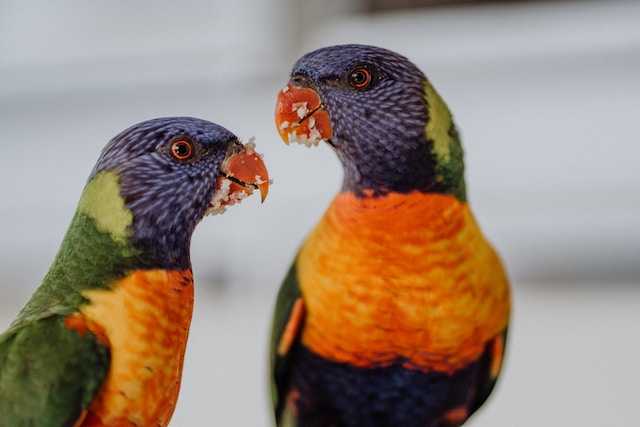
If you own a bird, you are aware of the significance of giving your feathery companion healthy food. Because they are convenient, simple to store, and supply all the nutrients your bird needs to stay healthy, bird pellets have grown in popularity among bird owners. In this in-depth manual, I will cover a variety of topics, including the advantages of feeding bird pellets, their nutritional content, how to select the best bird pellet for your companion bird, and much more. then let’s get going!
With all the vitamins, minerals, and nutrients your bird needs for a healthy life, bird pellets are a full and balanced meal for birds. Pellets are produced using a variety of substances, such as grains, seeds, vegetables, and fruits, and come in a variety of sizes and shapes. They are created to specifically address the dietary requirements of various bird species.
The fact that bird pellets offer complete nutrition to your bird is one of their main advantages. Pellets are designed to contain every vitamin and mineral your bird requires, unlike seed-based diets, which may be low in some elements. This can help stop health problems like not getting enough vitamins, being overweight, and not getting enough food.
The fact that bird pellets are simple to store and have a long shelf life is an additional advantage. Pellets are a practical choice for busy bird owners because they can be kept in an airtight container and will remain fresh for several months.
Value of Bird Pellets for Nutrition
Bird pellets are made to give your bird a healthy diet. They are enriched with vitamins and minerals and contain a combination of carbohydrates, lipids, and proteins. Depending on the brand and type of pellet, the precise nutritional composition of bird pellets might vary, however, most pellets contain a combination of the following:
Carbs are a source of energy
- Fats: give off energy and aid in nutrient assimilation.
- Protein is necessary for the development, upkeep, and healing of tissues.
- Vitamins are essential for growth, reproduction, and a strong immune system.
- Minerals are necessary for a variety of body processes, including nerve and bone health.
Bird pellets come in two primary varieties: formulated and natural. It can be difficult to make the best choice. Formulated pellets are prepared from a combination of different nutrients and are intended to give your bird a full diet. On the other hand, natural pellets are manufactured from entire meals including fruits, vegetables, and grains. Even though they are designed to offer comprehensive nutrition, they might be a better option for birds who prefer a more natural diet.
Each bird has distinct nutritional requirements, thus there are numerous brands and varieties of pellets to pick from. It’s crucial to take the following factors into account while choosing a pellet:
- Species: Different bird species have different dietary needs, so it’s important to choose a pellet that is made for the species of your bird.
- Age: Since young birds have different nutritional needs than adults, it’s essential to choose a pellet that’s right for the age of your bird.
- Health: If your bird has health problems like being overweight or not getting enough vitamins, you may need to choose a pellet that is made to treat those problems.
In order to be healthy, birds also need a variety of vitamins and minerals. The following are a few of the most crucial vitamins for birds:
- Vitamin A is essential for healthy immunological, growth, and visual systems.
- Vital for bone health and calcium absorption is vitamin D.
- Important for the immune system and antioxidant activity is vitamin E.
- Vital for blood clotting is vitamin K.
- B vitamins: vital for nerve health and energy metabolism
The following are a few of the essential minerals for birds:
- Calcium is necessary for healthy bones and egg production.
- Iron: essential for blood oxygen delivery Zinc: crucial for immune system health and wound healing
- Selenium: essential for the immune system and antioxidant activity
Fresh fruits and vegetables should still be a part of your bird’s diet even though bird pellets offer complete nutrition. Suitable choices for birds include:
- Greens with leaves, such as kale, spinach, collards, and lettuce
- Fruits include oranges, bananas, apples, and berries.
- Carrots, sweet potatoes, squash, and broccoli are among the vegetables.
It is crucial for your bird’s health and well-being to provide them with a balanced diet. Enjoy many happy years with your feathery buddy, and don’t forget to ask your veterinarian for specialized recommendations on your bird’s nutrition!
